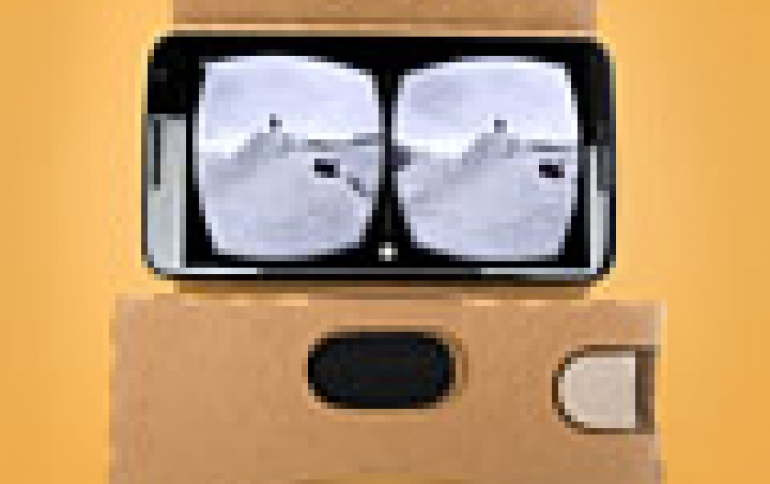
Google Wants To Make Websites Viewable in VR
As part of its Chromium project, Google is working at bringing virtual reality support to its browser. Google’s François Beaufort said that the Chrome Beta and Chrome Dev channels have a setting that "allows users to browse the web while using Cardboard or Daydream-ready viewers."
There’s an an experimental flag found at chrome://flags/#enable-vr-shell that enables a browser shell for VR.
Recently, Google announced Daydream, its upcoming virtual reality platform. Cardboard is the low-rent VR option that transforms your phone into a VR headset with a viewer that follows Google’s guidelines.
Bringing VR to the web is a hefty project, and we expect to take have a better picture about it as we get closer to an official launch of Daydream and VR hardware.
Artificial Intelligence push
In related news, Google and the U.K.'s government health service have partnered to study whether computers can be trained to spot degenerative eye problems early enough to prevent blindness.
Google DeepMind, the London-based artificial intelligence unit owned by Alphabet, announced a research partnership today with the National Health Service to gain access to a million anonymous eye scans. DeepMind will use the data to train its computers to identify eye defects. The aim is to give doctors a digital tool that can read an eye-scan test and recognize problems faster.
Earlier detection of eye disorders related to diabetes and age-related macular degeneration could allow doctors to prevent loss of vision in many people, according to a statement by DeepMind Tuesday.
Google acquired DeepMind in 2014 to expand its artificial intelligence capabilities.
Separately, DeepMind has announced the creation of a health care review board to scrutinize its work with the NHS. The panel includes a patient safety advocate, the editor of The Lancet medical journal, and others with health and technology backgrounds.




















